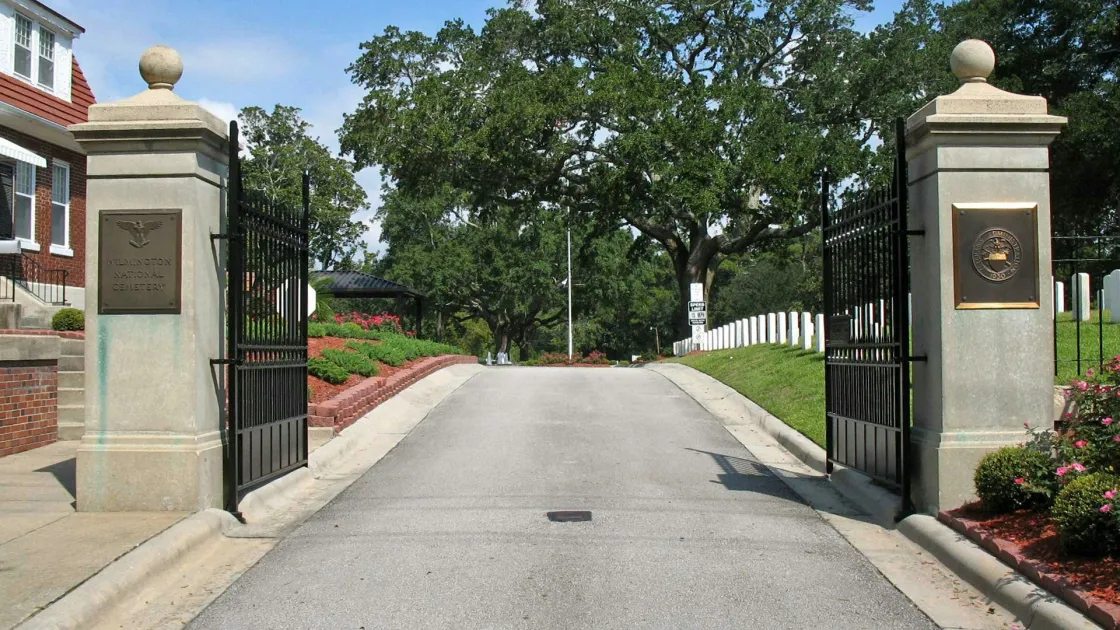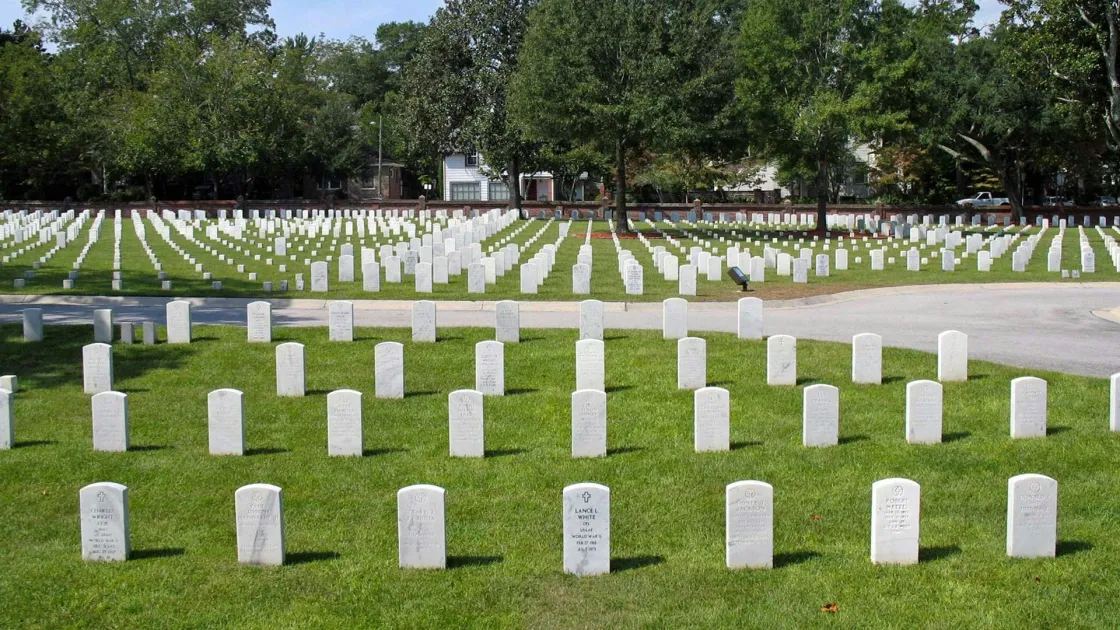Wilmington National Cemetery
North Carolina
2011 Market Street
Wilmington, NC 28403
United States
This heritage site is a part of the American Battlefield Trust's Road to Freedom: North Tour Guide app, which showcases sites integral to the Black experience during the Civil War era. Download the FREE app now.

The terrible cost of the Civil War, brought closer to an end by the decisive battles cutting the Confederate supply line through Wilmington, is apparent in the more than 557 United States Colored Troops (USCT) soldiers who rest in the Wilmington National Cemetery.
USCT soldiers from the 1st, 4th, 5th, 6th, 10th, 27th, 37th and 39th regiments fought and died in early 1865 alongside their white comrades in the Wilmington Campaign. Two years later, neglect and acts of desecration threatened the graves of the Union fallen scattered in nearby battlefields, cemeteries and makeshift burial sites. Empowered by Congress, the U.S. Army established the Wilmington National Cemetery, providing for the orderly removal and reburial of 2,059 Union dead between February and April 1867. But the passage of time had erased the identity of 1,360 of these men. The remaining 699, including 55 USCT soldiers, most of whom likely died from illness during the post-war occupation, kept their names.

In the years following, USCT veterans who survived the war came to rest among their comrades and added their names to the lines of gravestones. In 1882, four unknown USCT soldiers recovered from nearby Burgaw, North Carolina, joined their brothers in the segregated northwest corner of the cemetery in section 9, graves 2074 and 2075.
Scorned as a “Yankee” cemetery by some neighbors, this cemetery became the place where Union veterans and African American citizens came together — especially on Decoration Day each May 30th — to honor those who paid freedom’s ultimate price. Today, visitors also reflect on freedom’s ongoing cost as soldiers, sailors, and marines of later wars fill the cemetery. It is a fitting place to give voice to Paul Laurance Dunbar’s poem to The Unsung Heroes of the USCT.




